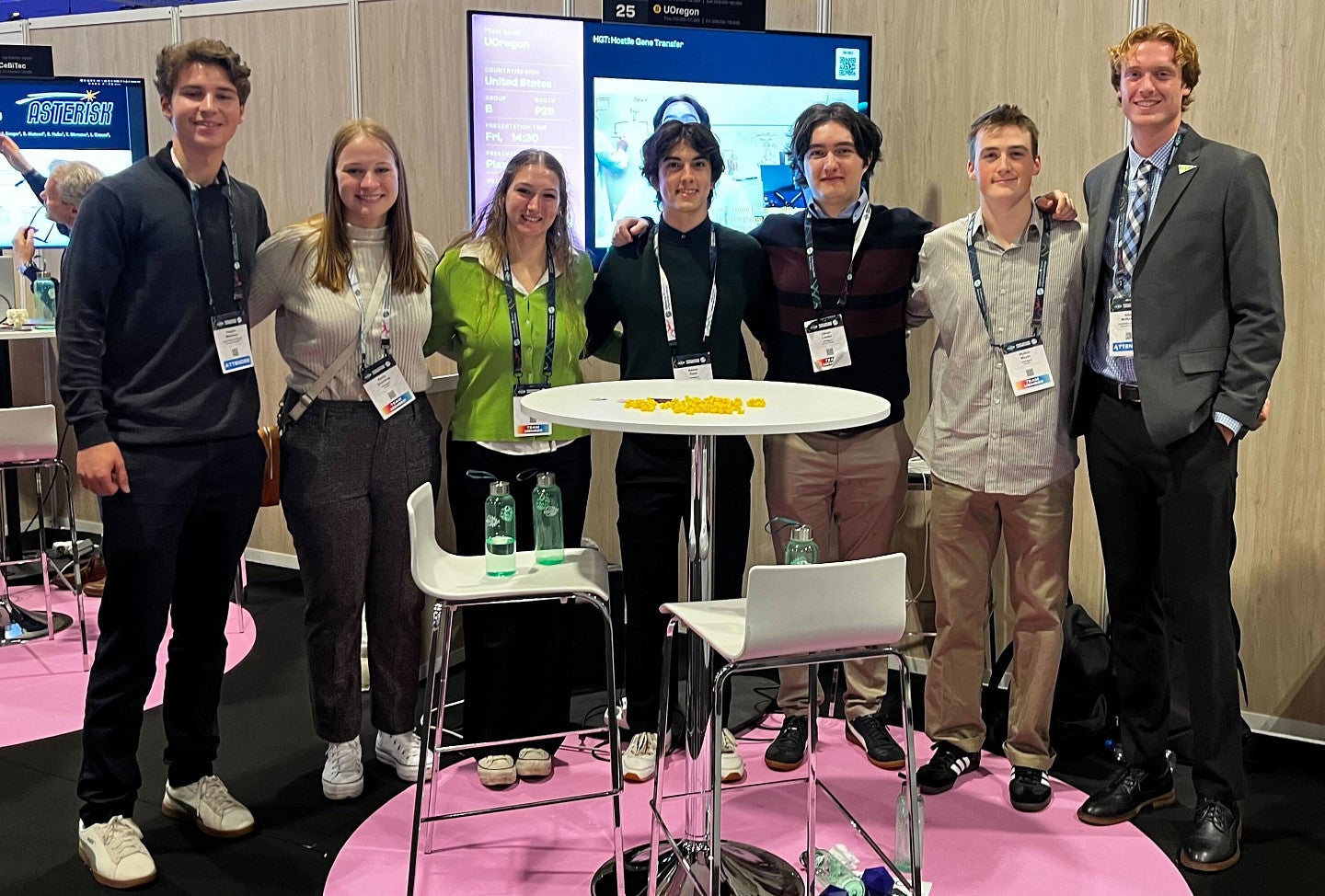“People thought our project was really cool and advanced,” said Keane Deas, co-leader of the team and a junior studying biochemistry and biology who works in the lab of Knight Campus assistant professor Calin Plesa. “It was really cool to see all of the people on our team who had worked so hard on the project be able to explain what they had done and to see other people be really excited by it … that is a great feeling.”

Teams were judged on their ability to design, build, and test projects using cutting edge synthetic biology. The Knight Campus team competed in the Therapeutics category with a project to create a living therapeutic in the form of an engineered probiotic, utilizing a wide variety of molecular biology and genetic engineering techniques.
The team was mentored by graduate students in the Plesa Lab, the Hettiaratchi Lab and the Hosseinzadeh Lab, and composed of 17 undergraduate students with different backgrounds, from biochemistry to human physiology to business. Seven of the members traveled to Paris, including two business students and five science students.
Brainstorming began in February, with the team initially seeking to engineer a probiotic strain to specifically target and treat infections in the gut caused by H. pylori, a leading cause of stomach cancer and ulcers that is resistant to current antibiotics. Over time, the team expanded its goal, seeking to develop a more modular strategy that could be applied to treat many different types of infections beyond H. pylori.
“We put in a ton of effort, working in the lab pretty much every day from July through October,” Deas said. “The first month was really rough, we had experimental failure after failure, but we stuck with it and by the end we were getting a lot of substantial results.”
In addition to presenting their results, the team attended numerous creative development workshops, networked with startup founders and other innovators, and found some time to see the sights of Paris.
The six-day trip was funded by UO academic programs and departments, including the Knight Campus, the Lundquist College of Business and the Center for Undergraduate Research and Engagement (CURE). Students raised additional money through DuckFunder.
“We gained initiative, perseverance, and self-sufficiency from the experience,” Deas said. “Even though the team was very self-sufficient, we could not have done any of this without the support of our sponsors, which include the Knight Campus, as well as all of the resources and support of the Plesa Lab.”
